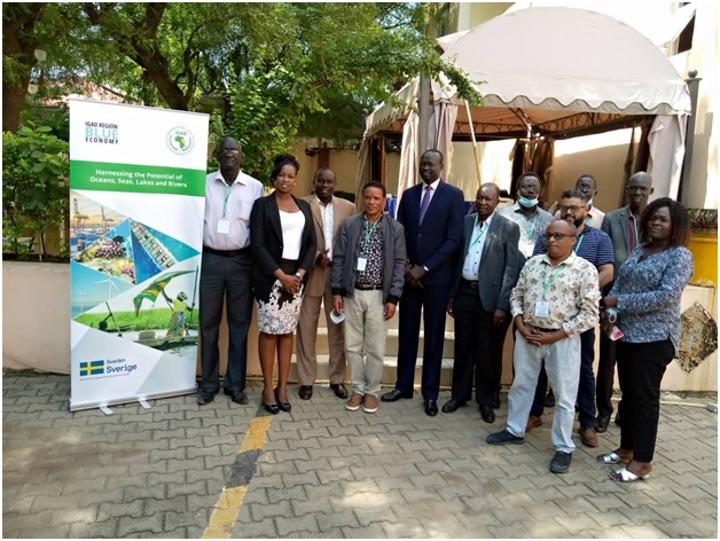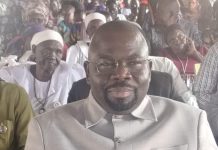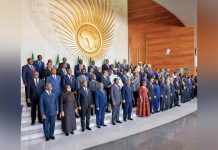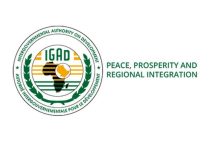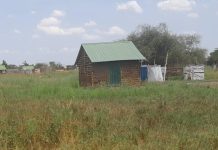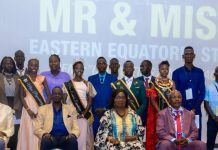Africa-Press – South-Sudan. Inter-Governmental Authority on Development (IGAD) has launcheda two-day National Validation workshop on the Baseline Assessment report of contribution of Blue Economy to the sustainable economic development in the country.
Aleu Garang, the Head of Mission said that there was a considerable work to do as put the Blue Economy into action in Africa. The African Union (AU) has developed a Blue Economy Strategy which identifies that the involvement of the Blue Economy is not only in economic development, but also in social circumstances and a healthy marine atmosphere.
“Addressing economic, social and environmental issues through a sustainable Blue Economy approach should be a fundamental element of the Blue Economy strategy. the ecosystem approach should be used to connect environmental, social and economic issues, thereby helping to reduce poverty, improve livelihoods and assure sustainable socio-economic development,”Garang said.
He added that developing and implementing the Blue Economy could provide desperately needed jobs for the younger generation across the continent. The economy of the IGAD region is mainly based on the use of its terrestrial natural resources while the region is also endowed with huge aquatic resources.
“However, the resources are not properly developed and used to improve the livelihoods and food security of the region mainly due to lack of coordinated efforts among different sectors, lack of common understanding of the concepts of Blue Economy, lack of guidelineframework on how to assess the value of the Blue Economy since the concept is new.The fact that the potential of the blue economy is not well understood and quantified either at the centralized or at the decentralized level. inadequate capacity of the member states to sustainably manage the blue economic resources like the lack of common legal and policy frameworks, lack of a regional platform to promote regional cooperation and exchange of views, ideas and experience on the various blue economy sectors, lack of enabling policies for public/private partnership in the development of the blue economy, lack of targeted strategy and interventions to promote gender equity and social inclusion in Blue Economy,”
He revealed that the above challenges urge for a comprehensive analysis at the national and regional levels with a multidisciplinary team. Provisions of the IGAD Biodiversity Policy and Protocol provide some legal frameworks to safeguarding, conserving and restoring terrestrial and marine biodiversity resources. Some assessments on the situation of coral reefs along with Djibouti, Kenya and Sudan coastal regions were undertaken and Local Based Marine Management Plans developed to support the sustainable management of these marine resources while contributing to the livelihood of local communities. Furthermore, IGAD developed a Regional Fisheries Strategy where the importance of the contribution of the B.E. was underscored. Accordingly, IGAD established a Blue Economy Unit under the Agriculture and Environment Division.
“Blue Economy (B.E.) contribution for the economy fund from EU-TCF was secured to support the project on Building Resilience and Attaining Food-Nutrition Security through B.E. that would lead to the development of the B.E. to accelerate the achievement of food security, resilience building, generating employment and income for youth and women and propelling economic growth in the region. Major results are seven (7) (National reports produced Djibouti, Ethiopia, Kenya, Somalia, South Sudan, Sudan and Uganda) on the contribution of B.E. for the national economy. Regional Synthesis report published on the contribution of B.E. to the Regional Economy five Year IGAD Blue Economy Strategy ready for validation and adoption by MS.
Garang stated that the above seven National and Regional reports were presented for MS to validate and endorse through zoom. However, it was not possible to bring the different stakeholders together. One of the priority in the B.E-Sweden support project is to conduct physical validation of the National Report by feeling the missing gaps. The inception workshop was planned to be heldfor 2 days in each MS (Djibouti, Ethiopia, Kenya, Somalia, South Sudan, Sudan and Uganda. The BE coordinator and Regional Fisheries Expert will lead the process. National facilitator would be engaged to assist facilitation during the meeting and submitting final report. The IGAD team would have two days in advance to visit stakeholders, two days in the meeting and additional one day to finalize the consultation process.
Meanwhile, Director General for Fisheries and Aquaculture Development in Ministry of Livestock and Fisheries Jackson Muso said that the objective of these project was to enrich the best line report on Blue Economy in the country.
“in South Sudan we are potential in fisheries sector, we are potential livestock sectors, Wildlife and Tourism, Forestry sector and water resource sector, Agriculture and transport. Blue Economy could go to our Africa culture very well,”Muso said.
In Africa, Blue economy is fast gaining traction in development circles as a policy option for countries—developed and developing alike to further their economic goals.
For More News And Analysis About South-Sudan Follow Africa-Press

